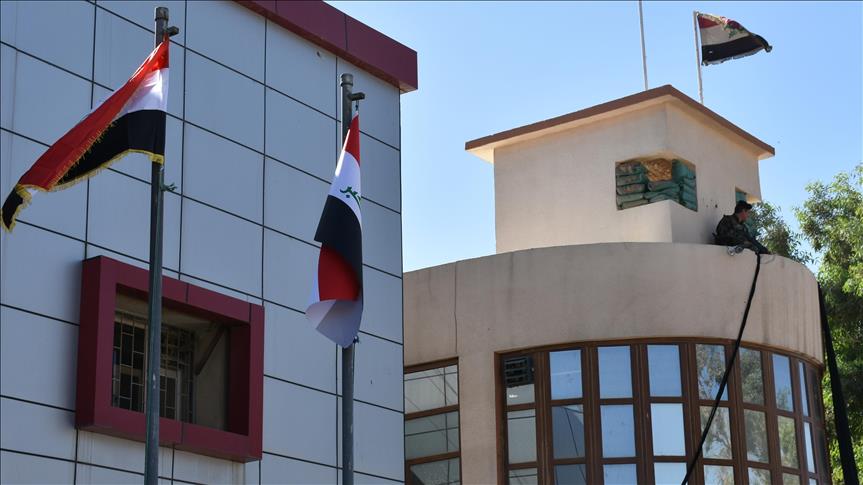ID :
476800
Fri, 01/12/2018 - 11:31
Auther :
Shortlink :
https://www.oananews.org//node/476800
The shortlink copeid
Kirkuk teachers demand employment by Iraqi government

KIRKUK, Iraq
Teachers in Kirkuk employed by northern Iraq’s Kurdish Regional Government (KRG) staged a demonstration on Thursday to demand salary payments from the central government in Baghdad.
Protesting teachers gathered outside the city’s education directorate to demand employment by Baghdad rather than Erbil, the KRG’s administrative capital.
"Our salaries aren’t being paid on time and the KRG is taking a cut from our pay,” demonstrator Selam Aziz told Anadolu Agency.
“We want Baghdad -- not Erbil -- to take responsibility for our salaries," he added.
Mohammed, another demonstrating teacher who gave only his first name, said Kirkuk’s teachers were being paid only once every three months -- even though they worked just as much as their counterparts employed by Iraq’s central government.
Farhad Hussein, a teacher who works at a language school in the Kurdish region, said roughly 8,000 teachers in Erbil were directly employed by Baghdad.
"We demand the same rights as our colleagues who are working for the central government," Hussein said.
Crisis
According to Iraq’s constitution, Erbil should enjoy a 17-percent share of Iraq’s total oil-export revenue. Nevertheless, since 2014, the KRG has struggled with a burgeoning economic crisis.
In 2014, then Prime Minister Nouri al-Maliki reduced Erbil's share of oil revenue on the pretext that the KRG was selling oil without Baghdad's consent.
When Haider al-Abadi assumed the premiership shortly afterward, Baghdad and Erbil appeared to come to agreement over oil sales -- but the central government, citing budget shortfalls, never paid the KRG its full share of revenue.
The KRG’s resultant economic crisis worsened after the Daesh terrorist group overran roughly one-third of the country in mid-2014.
According to KRG figures, Erbil employs roughly 1.4 million civil servants for whose salaries it is solely responsible.
While these civil servants would normally be paid out of oil revenue, the KRG lost roughly half of this income after federal forces assumed control of the oil-rich Kirkuk province following last year’s ill-fated referendum on regional independence.
Al-Abadi recently said that public salaries in the KRG would be paid once auditors from the central government determined the exact number of the Kurdish region’s civil servants.





